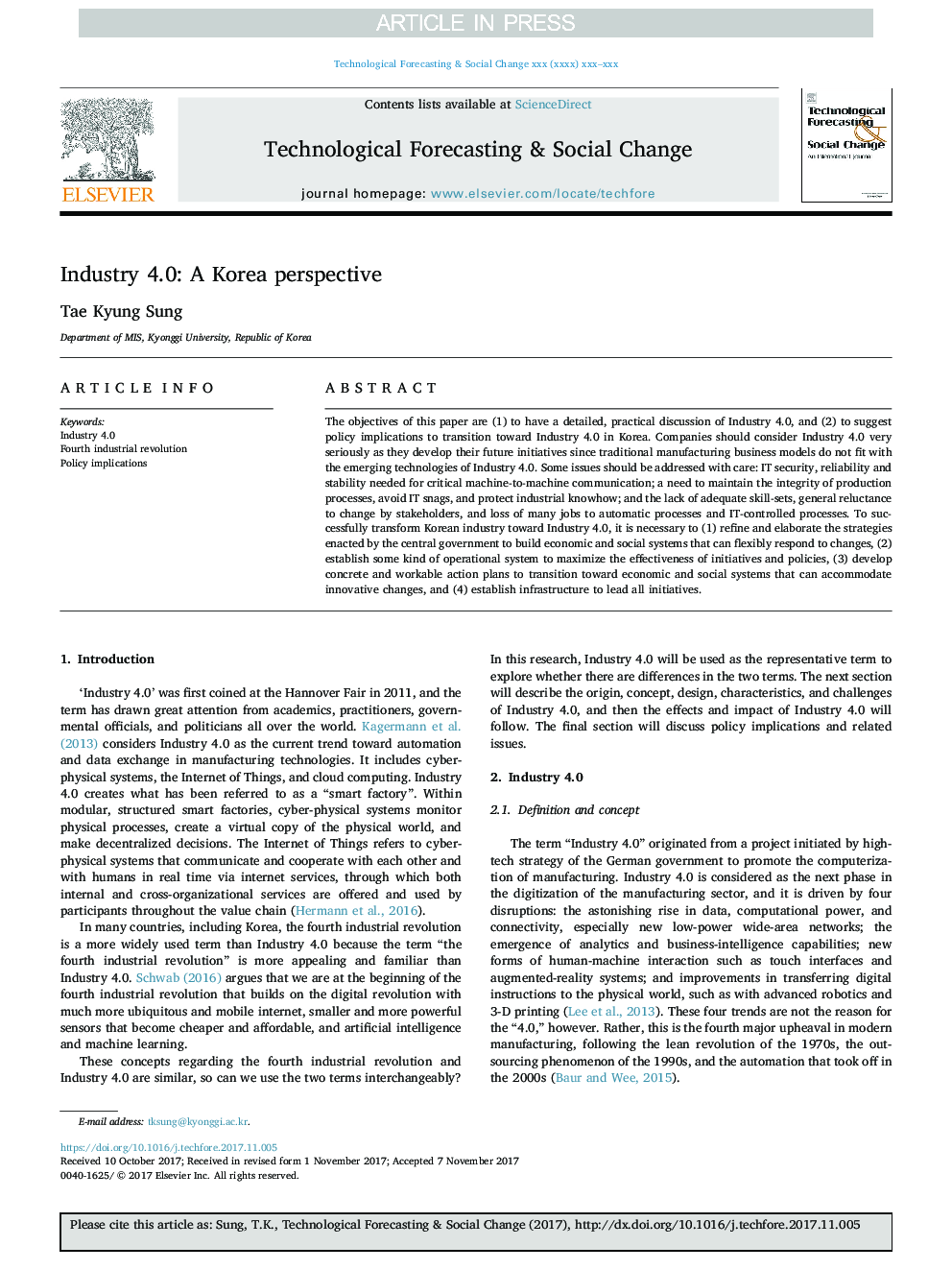| Article ID | Journal | Published Year | Pages | File Type |
|---|---|---|---|---|
| 7255260 | Technological Forecasting and Social Change | 2018 | 6 Pages |
Abstract
The objectives of this paper are (1) to have a detailed, practical discussion of Industry 4.0, and (2) to suggest policy implications to transition toward Industry 4.0 in Korea. Companies should consider Industry 4.0 very seriously as they develop their future initiatives since traditional manufacturing business models do not fit with the emerging technologies of Industry 4.0. Some issues should be addressed with care: IT security, reliability and stability needed for critical machine-to-machine communication; a need to maintain the integrity of production processes, avoid IT snags, and protect industrial knowhow; and the lack of adequate skill-sets, general reluctance to change by stakeholders, and loss of many jobs to automatic processes and IT-controlled processes. To successfully transform Korean industry toward Industry 4.0, it is necessary to (1) refine and elaborate the strategies enacted by the central government to build economic and social systems that can flexibly respond to changes, (2) establish some kind of operational system to maximize the effectiveness of initiatives and policies, (3) develop concrete and workable action plans to transition toward economic and social systems that can accommodate innovative changes, and (4) establish infrastructure to lead all initiatives.
Keywords
Related Topics
Social Sciences and Humanities
Business, Management and Accounting
Business and International Management
Authors
Tae Kyung Sung,
